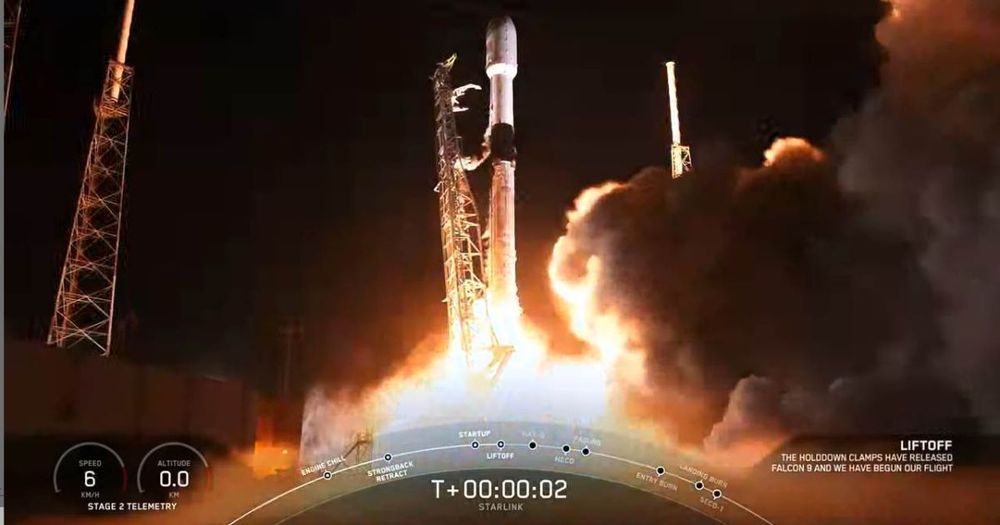Scientists believe that mysterious dark matter is key to forming galaxies in the cosmos. Now, a recent series of bizarre findings threatens to undermine everything we think we know.



A team of researchers at Osaka University has investigated a new method for generating nuclear fusion power, showing that the relativistic effect of ultra-intense laser light improves upon current “fast ignition” methods in laser-fusion research to heat the fuel long enough to generate electrical power. These findings could provide a spark for laser fusion, ushering in a new era of carbonless energy production.
Current nuclear power uses the fission of heavy isotopes, such as uranium, into lighter elements to produce power. Yet, this fission power has major concerns, such as spent fuel disposal and the risk of meltdowns. A promising alternative to fission is nuclear fusion. Like all stars, our sun is powered by the fusion of light isotopes, notably hydrogen, into heavier elements. Fusion has many advantages over fission, including the lack of hazardous waste or risk of uncontrolled nuclear reactions.
However, getting more energy out of a fusion reaction than was put into it has remained an elusive goal. This is because hydrogen nuclei strongly repel each other, and fusion requires extreme heat and pressure conditions—like those found in the interior of the sun, for instance—to squeeze them together. One method, called “inertial confinement” uses extremely high-energy laser pulses to heat and compress a fuel pellet before it gets the chance to be blown apart. Unfortunately, this technique requires extremely precise control of the laser’s energy so that the compression shock waves all arrive at the center simultaneously.

A SpaceX Falcon 9 rocket launched 60 Star broadband internet satellites into orbit and landed back on Earth, making SpaceX the operator of a record-breaking 180 satellites in orbit today.
SpaceX Launches 60 Star Satellites, Nails Rocket Landing in Record-Breaking Flight : Read more
There are other views of launching so many satellites too. Astronomers say SpaceX’s satellites are too bright in the sky. Friday’s launch will try to fix that.

The US government has placed software designed to train neural networks to analyse satellite images under new export controls in a bid to prevent foreign adversaries using said code.
The decision, made by Uncle Sam’s Bureau of Industry and Security (BIS), is effective today. Vendors shipping software subject to the controls – in that the applications help machine learning systems annotate satellite images in a particular way – will have to apply for a license to sell their products to customers outside of the US and Canada.
“Items warrant control for export because the items may provide a significant military or intelligence advantage to the United States or because foreign policy reasons justify control,” the BIS said.
Project NEON might just live up to the hype.
Samsung’s North American headquarters was designed to integrate into Silicon Valley, not wall employees off from it. Take a tour with WSJ’s Adam Falk as he checks out the workspace, including its elevated, open-air gardens.
Photo: Verus Productions
#WSJ #Samsung #OpenOffice

New research suggests that senolytic drugs, which remove harmful senescent cells that accumulate during aging, may be an effective therapy for glaucoma, a common age-related condition that leads to loss of vision.
In the short term, inflammation serves a useful purpose, as it helps to spur the repair and regeneration of tissue and rallies the immune system to defend against marauding invaders.
However, the chronic, smoldering, low-grade inflammation that occurs during aging can be incredibly harmful. The sources of this “inflammaging,” as some researchers describe it, include (but are not limited to) dysfunctional immune cells, cell debris, disruption to the gut microbiome, and senescent cells. Today, we are concerned about the latter after the release of a new study focusing on senescent cells and glaucoma [1].

If you’re interested in mind uploading, then I have a chapter that may be of interest to you. The title is:
by Michael Graziano and Taylor W. Webb.
This chapter describes in straightforward language a theory of consciousness termed Attention Schema Theory.
The introduction reads:
“This hypothetical building project serves as a way to introduce the theory in a step-by-step manner and contrast it with other brain-based theories of consciousness. At the same time this chapter is more than a thought experiment. We suggest that the machine could actually be built and we encourage artificial intelligence experts to try.”
Graziano, M. S. A., & Webb, T. W. (2018). Understanding consciousness by building it. In D. Jacquette (Ed.), Bloomsbury Companion to Philosophy of Consciousness (pp. 187–210). Bloomsbury.

City governments, agencies and companies are on high alert for ramped-up cyber activity possibly emanating from Iran. But attacks to a handful of websites across the globe, purportedly in the name of Iranian activists groups, aren’t cause for much concern and can’t truly be attributed to Iran in the short term.